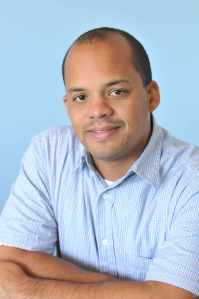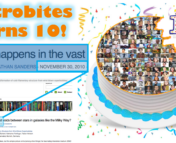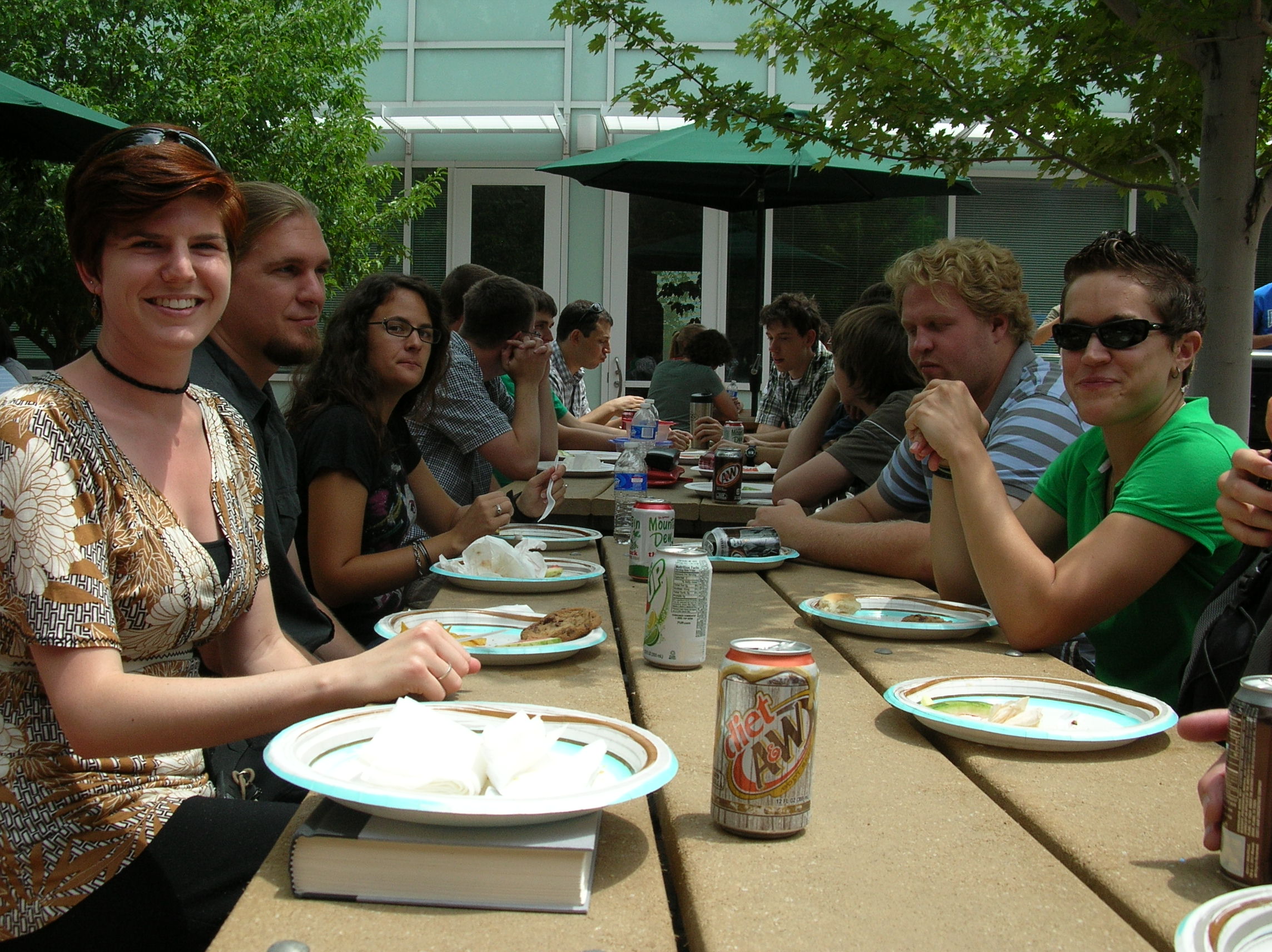We again have the pleasure of having John Johnson write today on astrobites. We were curious to get his opinion on several topics; in this first post, he’ll answer our questions about life in graduate school.
What is something you wish you had known going into grad school?
I really wish I had set some concrete goals for myself before entering graduate school so that I had an idea of what I wanted to get out of my graduate education. I spent too much time during my first two years expecting my education to be handed to me as it had when I was an undergraduate, and as a result I spent too much time in the wrong mindset. It took me a while to take ownership of my education. My goals were too short-sighted. I was just concentrating on getting the current week’s problem sets finished so I could get to the next one and then finish the course with a good grade. This was 100% the wrong approach.
Grades do not matter in graduate school. What matters is that you figure out how to apply your physics knowledge to figure out how the Universe works. Good grades, for what they’re worth, come as a result of this. If you get it backwards, good grades come despite of, or in place of true learning.
A perfect counter example was set by my friend, office mate and student mentor at Berkeley. The reason he was in grad school is that he had spent a year in Mexico after graduating with his B.S. in physics. Night after night he stared up at the Milky Way and decided that he wanted to understand why it looked the way it does. Why are there dark patches and light patches. Why is the brightness profile shaped the way it is? Where are we in the Galaxy? As a result, he was prepared to learn from his graduate courses, no matter the teaching quality nor how heinous the problem sets. The scattering cross section of dust grains wasn’t just this week’s homework assignment. It was why there are dark lanes. While I stressed out about my second-year prelim exam, worrying about being able to impress my professors, he was eager to just have a chat with the profs about what he had learned.
What did you do to address the work/life balance in grad school?
I did two things. First, I developed an interest in an activity that was very different from astronomy that forced me to devote a lot of time and effort to master. This is something I encourage my students to do. Every astronomer I’ve ever met is multi-talented. Some are musicians. Some are photographers. Some are amazing athletes. I found that I had a real talent for poker. By putting some of your mental energy into something other than astronomy, you’ll keep your mind limber and healthy.
The second thing I did was develop a social circle outside of astronomy. I made sure I had entire groups of friends who had never heard of Compton scattering. This ensured I was connected to the real world, here on Earth. It helped me recognize when I was working abnormally long hours, or when I was taking astronomy too seriously. You should be serious about your science, but it shouldn’t entirely define who you are.
What were one or two things you did in graduate school that you think benefited you in applying for post-docs and faculty positions?
One thing that has really helped over the years is the 60/20/20 rule. As Prof. Nate McCrady says, you should spend 60% of your time doing the best work you can, 20% of your time letting people know that you’re doing that good work, and 20% of your time acting like the scientist you want to be at the next level.
As a grad student, that last 20% should be spent acting like a postdoc. This means you should strike out in an independent science direction. For me, I collaborated with Prof. Josh Winn, who was a postdoc at the time, on several side projects that were distinct from my thesis project. As a result, in addition to increasing the amount of interesting science I worked on I had a diverse set of publications on my CV, regular interactions with scientists outside of my institution, a second mentor, and a strong letter of recommendation. As a postdoc, I began advising students, serving on committees and submitting funding proposals. Now, as a junior faculty member, I’m starting to act like a tenured professor by demanding an honorarium for speaking engagements, sleeping during colloquia, and shopping for a new sports car. Okay, I’m just kidding about the last part. The car is technically a coupe.






Such helpful advice! Thanks, Professor Johnson and astrobites!
When it comes work-life balance, I find it helpful to keep in mind that it’s a very personal issue and depends a lot of personality, work style, etc. I try not to compare myself to others or judge them. Fellow graduate students, unless we’re genuinely concerned about someone, we should resist the urge criticize their work-life balance in either direction. Comments like “Are you sure you’re advisor’s *really* okay with you taking X weeks off?” “How can you live with another astronomer — you must talk about work all the time.” “Wow, you’re always/never at the office!” are neither polite nor useful.
Sometimes I see assistant professors asleep during colloquiua and realize with horror just how exhausted they must be. I think I will comfort myself by pretending that they’re just practicing for their tenured position.
Along those lines, here is some additional advice for achieving that 20%:
For assistant professors: Devote at least one lecture a semester to telling strange and hilarious stories about your famous colleagues “back in the days.” Ask one of the invited speakers at a meeting during the coffee break, “Are you a graduate student? Have you passed your quals yet?” Drastically expand your wardrobe of astronomically-patterned ties and/or scarves.
For post-docs: Take to disappearing to work/hide out in coffee shops unfrequented by students and post-docs. Learn to make figures that are soul-achingly beautiful. Refer to new foldable table you purchased for your studio’s “breakfast nook” as a “kitchen renovation.”
For grad students: Slam your door angrily at the sound of laughter in the hallway instead of running out to join the conversation. If you must engage in conservation, bring up the job market at every opportunity (“Safeway has a great sale on Greek yogurt this week? Would be that I could offer myself 20% off to the Princeton Tenure-Track Search Committee!”). Replace your excitement over that request to referee a paper with annoyance and dread.
For undergrads: Tune your ears to the sweet, distant piping of free food.